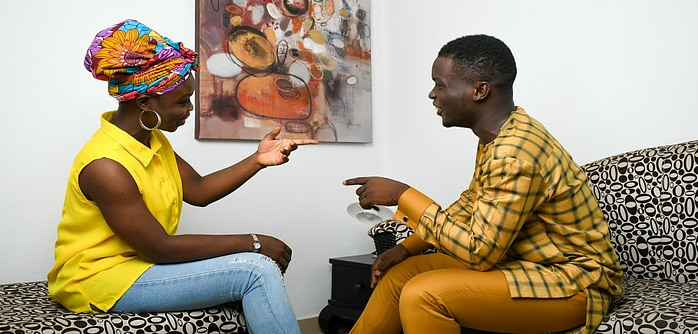
We are intrinsically social creatures and so we seek to connect and establish meaningful relationships with others. The social interactions we engage in define the way we live and play a crucial role in shaping our sense of self and well-being. Within these social constructs, it is not only beneficial to cultivate a strong sense of self-worth but also essential for fostering healthy relationships.
As beneficial as it is to cultivate self-worth, it is also very easy to lose oneself in a relationship, so in this article we will examine the profound impact of developing self-worth in relationships, exploring its definition, differentiation from self-esteem, and its role in forming and maintaining fulfilling connections.
Understanding Self-Worth
Self-worth, at its core, is the unshakeable belief in one’s fundamental value and deservingness of love and respect. It serves as the foundation upon which healthy relationships are built. While very closely linked, understanding the nuances between self-worth and self-esteem is essential for navigating the differences in interpersonal dynamics.
Self-esteem is our overall subjective evaluation of our own worth or value, mostly influenced by our personal experiences, achievements, relationships, and societal expectations. It involves our beliefs and feelings about our abilities, achievements, and overall sense of self.
How Self-Worth Manifests in Healthy Relationships

Self-worth might be one of the most challenging characteristics to embody as a woman because we normally tend to be caretakers – not discrediting men here – but speaking from a woman’s perspective.
However, this need not be the case because when we know our worth we can clearly communicate our values and also better take care of ourselves. Some of the ways a healthy sense of self normally shows up in the relationship dynamics include,
Ability to Choose Healthy Relationships: When we have a robust sense of self-worth we are more likely to make healthier relationship choices. Whether these relationships are familial, romantic, or platonic, our solid foundation of self-worth serves as an anchor on which we build these connections. Valuing ourselves also helps us set healthy boundaries, communicate effectively, and engage in relationships for the right reasons based on mutual respect.
Avoiding Codependency: As we cultivate a healthy dose of self-worth we create a strong sense of self that equips us to navigate relationships without falling into the trap of codependency, where one’s sense of self becomes overly reliant on the approval and affirmation of others.
When we have a healthy dose of self-worth we are more likely to approach relationships with a sense of completeness rather than seeking validation or fulfilment from our partner. This completeness allows for a more equitable partnership, where both individuals contribute to the relationship without sacrificing their own identity or autonomy.
Setting Boundaries: Healthy relationships are built on mutual respect, and setting boundaries is a manifestation of self-respect. Valuing ourselves becomes the compass guiding our interactions, enabling us to set and communicate boundaries effectively, and then nurturing relationships that are rooted in genuine respect and understanding.
When we embody a healthy sense of self-worth, we inherently recognise our own needs, desires, and limits. This self-awareness empowers us to establish clear boundaries that communicate our expectations and establish a framework for respectful interaction. As we do this, we create a space where both parties feel acknowledged and understood, contributing to an environment of trust and openness.
Self-Advocacy in Partnerships

Effective communication is the cornerstone of self-advocacy in relationships, this allows each party to express their needs, set boundaries, and navigate negotiations without compromising their self-worth. Some of the ways to exercise this is through,
Clear and Assertive Communication: Self-advocacy begins with the ability to communicate clearly and assertively. This involves expressing thoughts, feelings and needs in a direct yet respectful manner.
Voicing Needs Clearly: Expressing our needs and expectations in a relationship is crucial for building a strong foundation of understanding. When we clearly articulate our desires and boundaries we help our partners align their expectations.
Negotiation Without Undermining Self-Worth: Negotiation is a natural part of any partnership, involving compromise and collaboration. However, it’s essential that we can have these discussions without compromising our self-worth and even in non-romantic settings our self-worth is preserved and heightened when we are able to stay grounded in our values.
Active Listening: An integral aspect of effective communication is active listening. Self-advocacy involves not only expressing oneself but also genuinely hearing and understanding the perspectives of others.
Using “I” Statements: Using “I” statements is a way to maintain a non-confrontational tone while expressing needs. These statements focus on our personal feelings and experiences, reducing defensiveness and promoting a collaborative approach to problem-solving.

Negotiation Without Undermining Self-Worth: Clarify Your Needs and Priorities
It is advisable to take the time to clarify your own needs, priorities, and boundaries before entering into a negotiation.
This self-awareness is crucial for expressing ourselves effectively and understanding where we may be willing to compromise and where we need to stand firm. Clearly defining our needs provides a solid foundation for constructive discussions and we can cultivate this through the following,
Having Open and Honest Communication: Effective negotiation is built on open and honest communication. Our ability to express our thoughts, feelings, and concerns with transparency, ensures that our partner understands our perspective. This might also encourage them to share their thoughts as well.
Focusing on Interests, Not Positions: Rather than becoming entrenched in specific positions, it is better to focus on the underlying interests and needs driving each person’s viewpoint. This approach allows for more creative problem-solving and can lead to solutions that address the core concerns of both individuals. By understanding each other’s interests, we are able to work together to find common ground.
Adapting a Collaborative Mindset: Approaching negotiations with a collaborative mindset rather than a combative one allows for open and honest conversations. Adapting this collaborative approach fosters a sense of teamwork and mutual respect, creating an atmosphere conducive to constructive negotiation.
Setting Realistic Expectations: Acknowledging that compromise is a natural part of negotiation helps set realistic expectations. This mindset helps prevent feelings of disappointment and ensures that the negotiated outcome aligns with our values and boundaries.
Settling on a Win-Win Solutions: Strive for win-win solutions where both individuals feel satisfied with the outcome. This requires creativity and a willingness to explore options that meet the needs of both parties. By actively seeking solutions that benefit everyone involved, we reinforce a sense of fairness and cooperation.
Affirm Your Self-Worth Throughout: It is worth noting that during negotiations, we can consciously affirm our self-worth. Reminding ourselves of our values, strengths, and the contributions we bring to the relationship. This self-affirmation reinforces our sense of worthiness, preventing compromise that goes against our core values or diminishes our self-esteem.
Independence vs. Interdependence

Maintaining individuality within a relationship is not a contradiction to interdependence; rather, it is a compliment. The balance between personal autonomy and shared goals creates a partnership that is resilient, supportive, and favourable to both personal and collective flourishing. Whilst we advocate individuality in relationships, we cannot deny that emotional support flows freely in an interdependent relationship.
Partners are attuned to each other’s needs and emotions, creating a strong foundation of trust and connection. This emotional bond enhances the overall well-being of the individuals and the partnership. Recognising the strength in individuality paves the way for a relationship where each partner can thrive independently and contribute meaningfully to the shared journey of growth and fulfilment
Overcoming Challenges to Self-Worth
When faced with criticism and rejection, individuals with a strong sense of self-worth can employ strategies such as separating external feedback and focusing on personal growth.
Rejection as we know, whether in relationships or professional settings, is a part of life and being able to transform criticism and rejection into opportunities for personal growth is a proactive approach that not only enhances self-worth but also fosters resilience in the face of setbacks.
As social creatures, one important aspect of our holistic well-being is our need to love and feel loved and this is where support systems come to play.
Whether through trusted relationships or professional guidance, support systems play a vital role in preserving and nurturing self-worth during challenging times. These networks provide emotional validation and valuable insights, reinforcing our sense of worth and resilience.
Ultimately, the ability to navigate setbacks and preserve self-worth lies in a combination of self-reflection, proactive growth, and the strength derived from supportive connections.
Cultivating a Culture of Self-Worth in Relationships

Educating Partners on Mutual Self-Worth: Partnership thrives when both parties recognise and prioritise each other’s self-worth. This involves developing an understanding of the shared responsibility in uplifting one another. By communicating the importance of our self-worth, each of us in a partnership, can contribute to a relationship built on mutual respect and support.
Celebrating Individual Achievements: Healthy relationships thrive on acknowledging and celebrating individual achievements. Recognising each other’s strengths and accomplishments contributes to a positive and affirming partnership. This practice not only reinforces our self-worth but also cultivates an environment where both partners feel valued for their unique contributions.
Shared Activities for Collective Self-Worth: We can engage in shared activities and pursue joint goals to enhance our collective self-worth. The importance of shared experiences cannot be understated, as they create a sense of unity and accomplishment. By embarking on mutual ventures, partners strengthen their bond and contribute to a thriving relationship environment.
Putting it all together
In essence, a culture of self-worth in relationships is cultivated through education, celebration of individual achievements, and the pursuit of shared goals. Self-worth is the golden thread that connects us individuals in a space of mutual respect and understanding.
By understanding and cultivating self-worth as individuals in a relationship, we not only enrich our personal lives but also contribute to the creation of a culture of love, support, and growth within our relationships. Partners who actively prioritize and uplift each other’s self-worth create a foundation for a positive, supportive, and flourishing relationship.
On the back of this, I would love to know what you think of this topic or how you cultivate self-worth or how it shows up in your relationship so please share in the comments.
Love & Light
Sheila Daisy.




